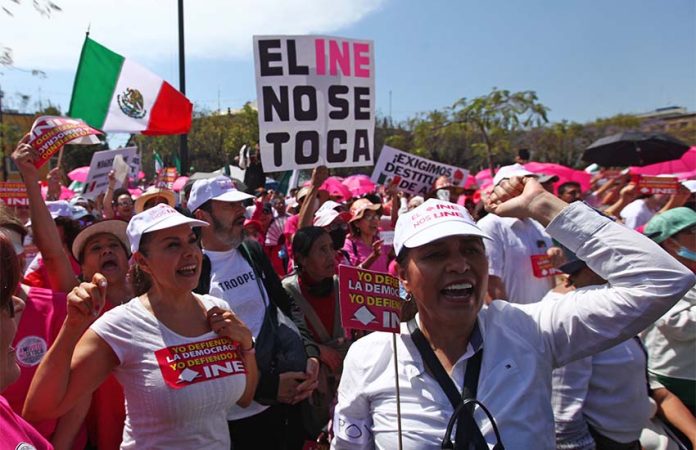Hundreds of thousands of people took to the streets across Mexico on Sunday to protest the federal government’s recently-approved “Plan B” electoral reform laws and to demonstrate their support for the National Electoral Institute (INE), a key pillar of the country’s democracy.
Organized under the slogans and hashtags #ElINENoSeToca (Don’t Touch the INE) and #MiVotoNeSeToca (Don’t Touch My Vote), demonstrations took place in more than 100 cities including Mexico City; Guadalajara; Monterrey; León, Guanajuato; Culiacán, Sinaloa; Puebla; Toluca; Querétaro; Mérida; and Torreón, Coahuila.
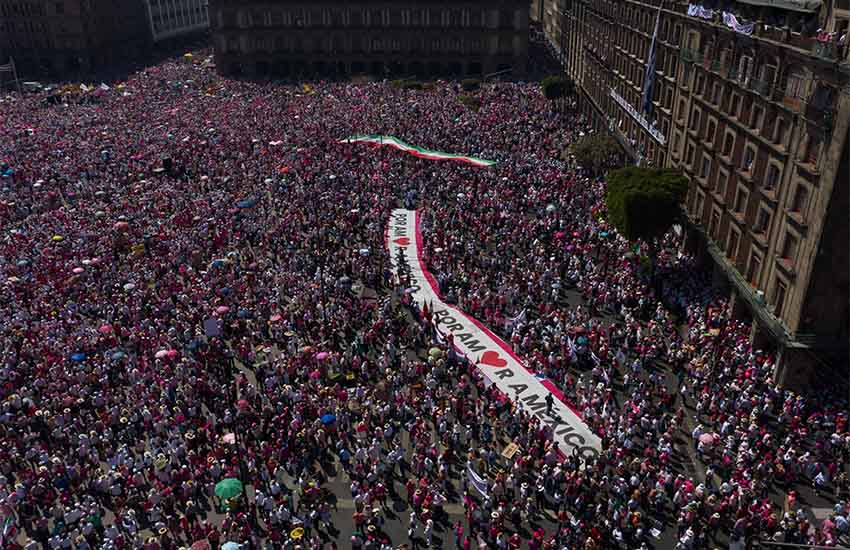
The protests came four days after the Senate approved the Plan B reform backed by President López Obrador, legislation that critics say will significantly weaken the INE and thus pose a threat to upcoming elections.
The reform — put forward after a more ambitious constitutional bill to overhaul Mexico’s electoral system was blocked in the legislature late last year — will slash INE’s budget and therefore force the dismissal of large numbers of staff, diminish its capacity to sanction politicians who violate electoral laws, curtail its autonomy and close some INE offices, among other consequences.
The INE is an autonomous elections oversight body that organizes elections at all three levels of government in Mexico.
Dressed in the INE’s logo’s colors of pink and white, protesters in Mexico City marched from various starting points to the capital’s central square, the Zócalo, located opposite the National Palace, the seat of executive power and López Obrador’s residence.
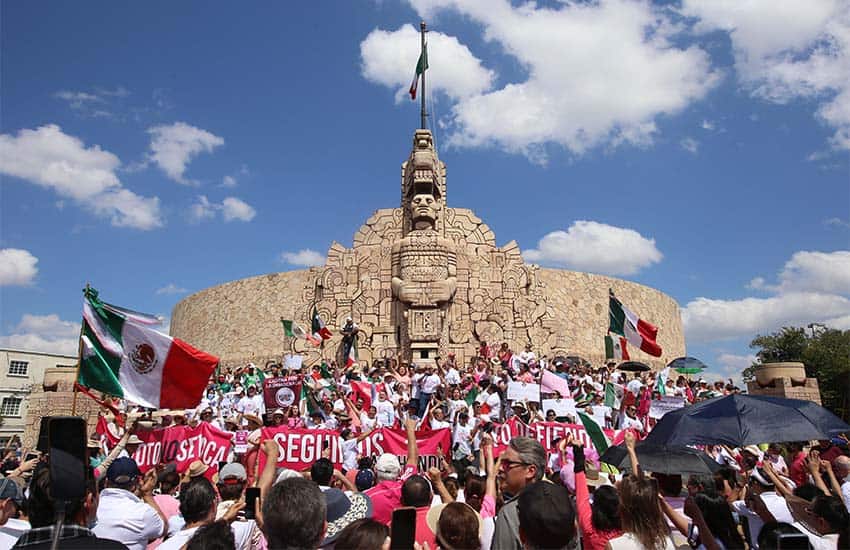
The Mexico City government said that 90,000 people participated in the demonstration, while organizers claimed that close to half a million citizens took to the capital’s streets to defend the INE and demand that the Supreme Court strike down what they see as an illegal reform and a threat to democracy in Mexico.
“We came to knock on the doors of the court … [to ask] the justices to not allow the loss of the nation and to say to them respectfully but with complete firmness, ‘Send Plan B to the dustbin of history; don’t endorse an unconstitutional and immoral electoral reform,'” said journalist and former federal deputy Beatriz Pagés in an address to protesters in the Zócalo.
“… They’re seeking to eliminate the [electoral] umpire to twist the decision of citizens [at the presidential election] in 2024,” said the spokesperson for Unid@s, a collective of citizens’ groups.
“The Plan B electoral reform is a fraud foretold. … If we let them steal our votes, later we’ll let them steal other rights and other freedoms,” Pagés said.
Former Supreme Court justice José Ramón Cossío Díaz expressed confidence that the nation’s highest court will invalidate the reform despite “the pressures” the 11 justices are under from “those seeking to take control of” Mexico’s electoral system.
“I’m sure that the justices … will declare that electoral norms that reduce the human and budgetary resources of electoral bodies violate the principles of equity and certainty,” he told protesters in the Zócalo.
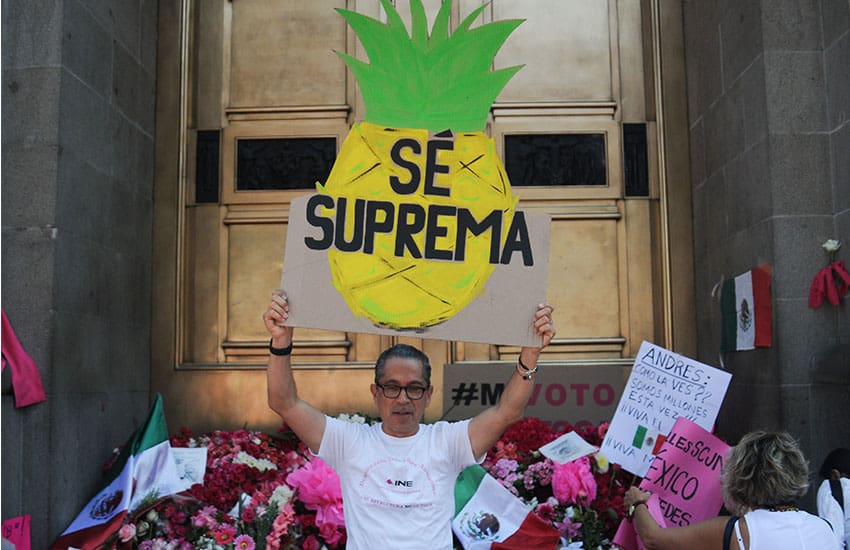
Opposition parties have indicated they will launch legal challenges to the reform once it has been promulgated via publication in the government’s official gazette.
Retiree Alejandra Orduña, who participated in the Mexico City protest, told the newspaper El País that López Obrador’s aim in putting forward the electoral reform was to ensure that the ruling Morena party stays in power after the 2024 election, at which a new president will be elected and both houses of Congress will be renewed.
“The INE is an autonomous institution that has guaranteed clean elections up until today. This man governing [now] arrived [to power] thanks to the INE, and now he wants to get rid of it and impose rules to perpetuate himself in power along with his followers,” Orduña said.
A couple in their fifties who spoke with El País agreed that “the INE is under threat” due to the approval of the Plan B reform, which, according to the government, could generate annual savings of as much as 5 billion pesos (US $271 million).
The couple, who told El Pais their names were Verónica and José Luis, said they were afraid that López Obrador would continue concentrating power in the executive — an accusation he has faced on numerous occasions since taking office in 2018.
Magdalena Rodríguez, a 70-year-old protester, told El País that she had never been involved in politics but decided to join the demonstration on Sunday because Mexico is in “complete decline” under the rule of the current government.
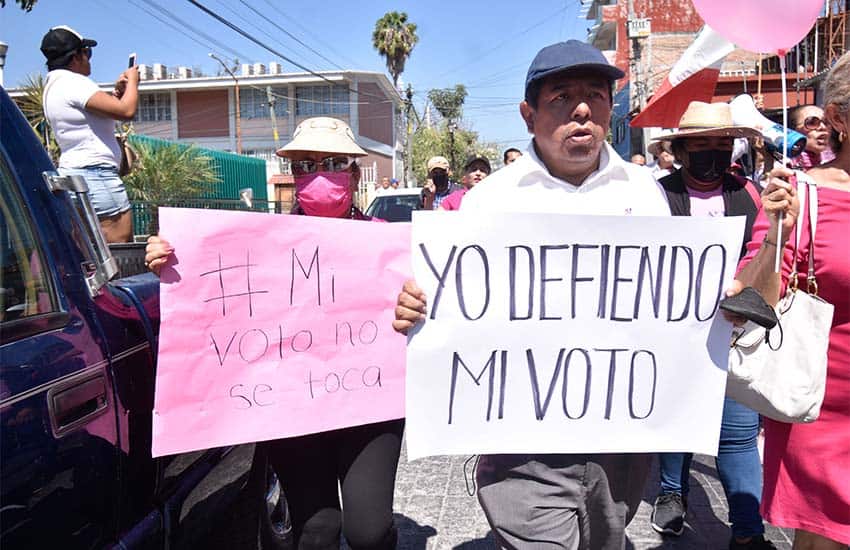
“We don’t want to get to communism. [López Obrador] thinks he’s God, but he’s not. He’s not the owner of the country either,” she said.
In Toluca, the newspaper Reforma reported, protesters chanted, “If the INE disappears, the dictatorship appears” and held up signs with the message: “We’re Plan C: constitution, court, citizens.”
The INE’s predecessor, the Federal Electoral Institute (IFE), oversaw Mexico’s transition to full democracy after the country was ruled without interruption by the Institutional Revolutionary Party (PRI) for over 70 years until the National Action Party triumphed at the 2000 presidential election.
Poll results published by the Reforma newspaper last November showed that 80% of respondents believe that the INE has played an important role in guaranteeing democracy in Mexico while 71% said that its demise would pose a threat to democracy.
The United States government has been urged by some U.S. newspapers such as The Washington Post to express its opposition to López Obrador’s “remaking” of the electoral system, and on Twitter on Sunday, U.S. Assistant Secretary of State for Western Hemisphere affairs Brian A. Nichols did that in a way, writing that “today, in Mexico, we see a great debate on electoral reforms that are testing the independence of electoral and judicial institutions.”
“The United States supports independent, well-resourced electoral institutions that strengthen democratic processes and the rule of law,” Nichols added.
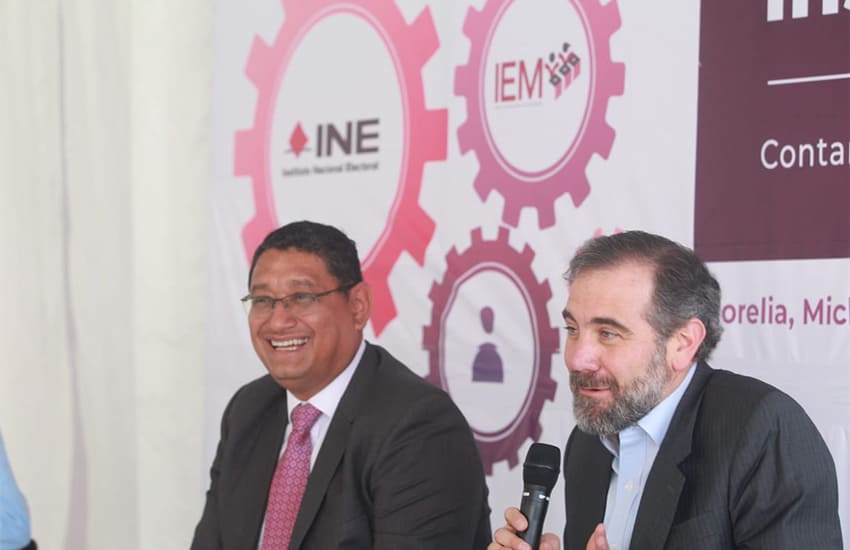
For his part, INE president Lorenzo Córdova — a tireless defender of the institute he heads — posted a photo of a packed Zócalo to his Twitter account on Sunday.
“Today I won’t publish my Sunday video,” he wrote. Today is a day of the citizenry, and it’s up to all of us to listen to them.”
The protests, which attracted a more middle and upper-class demographic than many other demonstrations, came three and a half months after Mexicans took to the streets in some 50 cities to defend the INE against the (ultimately defeated) plan to replace it and state-based electoral authorities with one centralized body.
According to an Associated Press report, many demonstrators were “simply wary of the kind of vote miscounting, campaign overspending and electoral pressure tactics that were common in Mexico before the independent electoral agency was created in the 1990s.”
While the Mexico City demonstration was easily the largest in the country, the protests in Guadalajara, Monterrey and León also attracted tens of thousands of people.
However, López Obrador, who remains a popular president, described the gatherings as “very small” given that “there must be about 25 million conservative citizens” in Mexico.
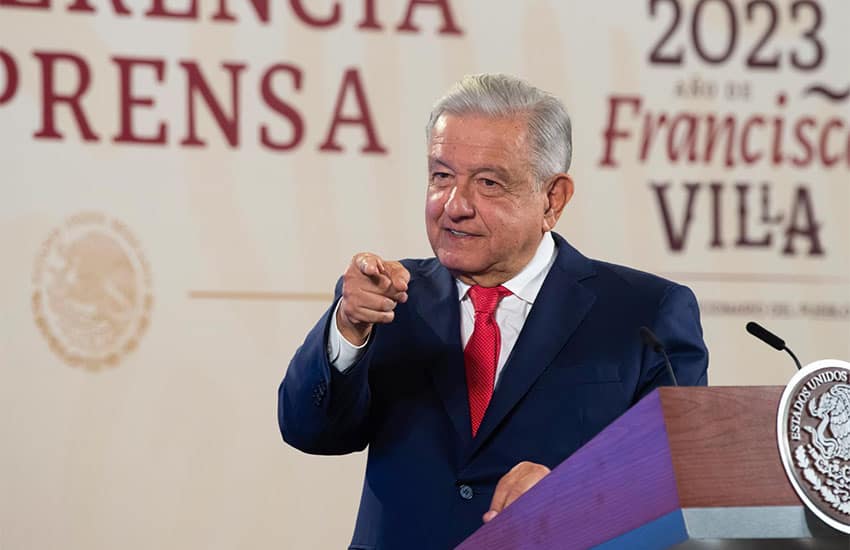
“… When they say ‘don’t touch the INE,’ what they’re thinking is don’t touch corruption, don’t touch privileges, don’t touch the narco state,” he said Monday while acknowledging that citizens “have every right to demonstrate.”
The president — who has rejected claims that the electoral reform places the staging of free and fair elections at risk while touting the billions of pesos in annual savings it will generate — also took aim at the two orators who addressed the protesters in the Zócalo.
“Beatriz Pagés, daughter of [deceased journalist] José Pagés Llergo from [the magazine] Siempre!, is very priista, very conservative,” López Obrador said, using a word for members and supporters of the once omnipotent PRI.
“And José Ramón Cossío is a fraud, … a Supreme Court justice during a narco state supported by [former president Felipe] Calderón,” he added, making hay out of the conviction in the United States last week of Calderon’s former security minister Genaro García Luna on drug trafficking charges.
With reports from El Economista, Reforma, El Universal, El País, Aristegui Noticias and Proceso
